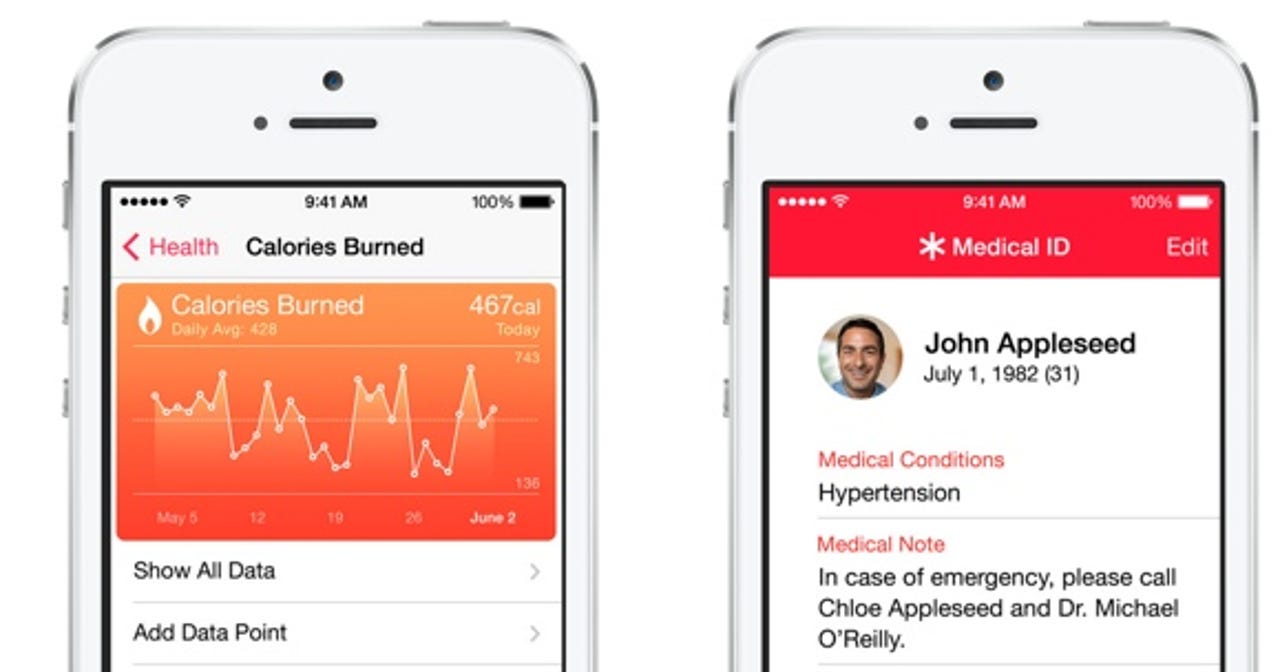HealthKit integration in iOS 8 will pull in billions for Apple


Speculating as to what Apple has coming down the pipeline is a popular pastime for many pundits and analysts. Over the past few years we've had pontificating over an Apple-branded TV, and then came the proselytization as to how an iWatch could add countless billions to Apple's already bountiful bank balance.
Featured
But it seems Apple has, in its wisdom I believe, decided to ignore this advice and go after a far more lucrative market – health.
What many don't realize is that Apple is already in the health market segment. The iPhone and iPad is already the hub for a vast array of medical and fitness-related products, ranging from pedometers to blood pressure monitors. But rather than enter the health market with its own range of devices, all emblazoned with the Apple logo – and expensive and risky move – the Cupertino giant has instead concentrated on building a software platform that allows third parties to build these devices.
And it's a move that's paid off.
iOS is the most prolific mobile platform when it comes to a third-party hardware ecosystem. There are accessories available for the iPhone and iPad that only a few years ago I wouldn't have thought possible. This comes down to Apple creating a stable, unified platform that developers can build upon. It also helps that Apple has sold around half a billion iPhones and over 200 million iPads, creating a vast potential market for third-party accessories.
That's a massive user base for an accessory maker to tap into.
Oh, and remember that Apple generates revenue from its "Made for iPhone" licensing program.
Now that the user base is there, and a massive third-party health-related accessory market has grown up around iOS, the next logical step is for Apple to do what it is doing in iOS 8 and create a platform to pull all this data together into a single place. Rather than go digging to find your steps for the day in one app, your vitals from another, and your nutrition from yet another app, all your data will be available in one place.
There's a hidden advantage for Apple in this. User's data is locked into iOS, which keeps people bound to the platform. If that data was stored in the app or on cloud server, it might be easier for people to migrate to a different platform.
AR + VR
Note that I'm not saying that people won't be able to migrate – there will undoubtedly have to be a way for users to extract their data – but having this data is locked into iOS, combined with the fact that many of these medical devices are iOS-specific, means that people are more locked into Apple's platform than ever.
Users will also be tied to iOS because many of the health accessories currently available are specific to iOS.
There's also a diversity to the health sector that we don't see anywhere else. It spans all the way from fitness to medical, from casual data such as steps walked during a day to bodyweight, to important specifics such as blood glucose levels or blood pressure.
Compare this to a TV or a wrist-mounted computer. Sure, there's a novelty to these devices, but it's more hardware that Apple needs to make and sell. Adding the Health app to iOS activates this new feature on hundreds of millions of devices already in circulation, while the APIs that Apple adds to the backend will spawn more health-related accessories and services. Instead of having to focus on a totally new piece of hardware, iOS 8 will increate the value of Apple's existing iPhone and iPad lineup.
While there's no doubt that a TV or watch from Apple would be interesting and disruptive – and I'm in no way ruling out such devices in the future – the health related additions to iOS will be far more beneficial to Apple in the short to medium term because it builds on an existing ecosystem rather than trying to foster a new one.
See also: